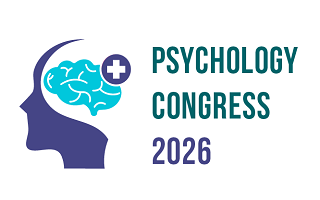3rd International Congress on
Psychology & Behavioral Sciences
March 26-27, 2026 | Osaka, Japan

Address: 1 Chome-9-15 Shinkitano, Yodogawa Ward, Osaka, 532-0025, Japan.
Psychology Congress 2026

All India Institute of Medical Sciences, India
Abstract:
The study assesses the efficacy of a developed neuropsychological rehabilitation termed ‘Patient & Caregiver Indian Neuropsychological Continuum of Care (PIN-CoC) Model’ on quality of life (QoL), cognitive decline, self-efficacy, health related locus of control and resilience. The purpose was to develop a hybrid rehabilitation (hospital and home based) model in which the caregiver and patient could be psychoeducated about the condition and trained to consistently engage in beneficial neuropsychological compensatory exercises, engage in lifestyle modifications and reframe karmic beliefs. The intervention has been designed for use by trained and qualified Mental Health Professionals, Eg. Clinical Neuropsychologists/ neuropsychologists/ Clinical psychologists (Neurosciences Center) (which is one of the specializations within Psychology, a discipline integral to neurosciences) who will undergo intensive training of the PIN-CoC intervention for effective outcome of neuropsychological rehabilitation. Eligible patients from the Neurology Out-Patient Department (OPD) of the hospital were screened, and recruited into an intervention (group 1) and control group (group 2). Patients were assessed at two time points i.e. at baseline and immediately after intervention. A total of 59 patients were included in the study (group1/group2=28/31). Data was analyzed using the statistical software Stata 14.0. Categorical data was expressed as frequency and percentage whereas quantitative data was presented as mean ± sd. The variables which did not follow normal distribution were expressed as median and interquartile range. Chi square/Fisher exact test was used to compare categorical variables between the two groups. Independent t-test/Mann Whitney test was used to compare scores between the two groups as found appropriate (based on normality of data collected). A value of p < 0.05 was considered as statistically significant. Analysis of data found statistically significant improvement in group 1 on the domains of attention and executive functioning (p=0.049) on cognitive assessment; and energy (p=0.016), mood (p=0.034) and self-care (p= 0.009) sub-domains of QoL assessment. Increased scores were also observed on memory, health related locus of control, caregiver preparedness, self-efficacy and resilience but this change was not statistically significant. Qualitative feedback was collected one month post the completion of intervention on a semi-structured interview schedule. Patients reported improvement in restoring functionality, formation of daily schedules and reduced dependence. It can be suggested, hence, that neuropsychological rehabilitation programs can bring about a positive change in the domains of attention, executive functioning, and quality of life of patients in terms of their mood, energy, and self-care abilities, given that the patient and caregiver is educated about the condition and trained to follow the rehabilitation activities consistently at home. The study further outlines policy recommendations at the national level that may benefit the clinical population and reduce burden on patient, caregiver, and financial burden on government.
Biography:
Dr. Ashima Nehra is a distinguished professional at the All India Institute of Medical Sciences (AIIMS) in New Delhi. With expertise in her field, she is dedicated to advancing medical knowledge and providing exceptional care to patients through innovative research and clinical practice.
